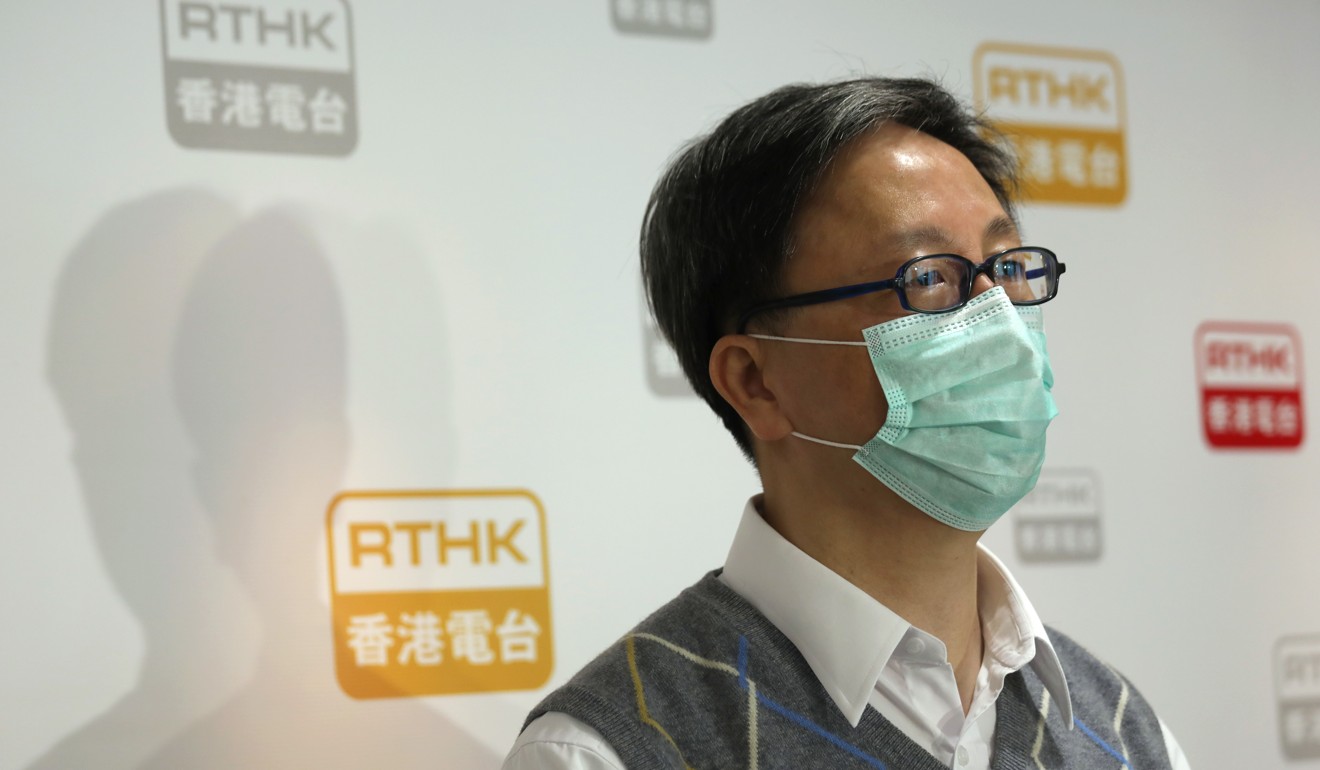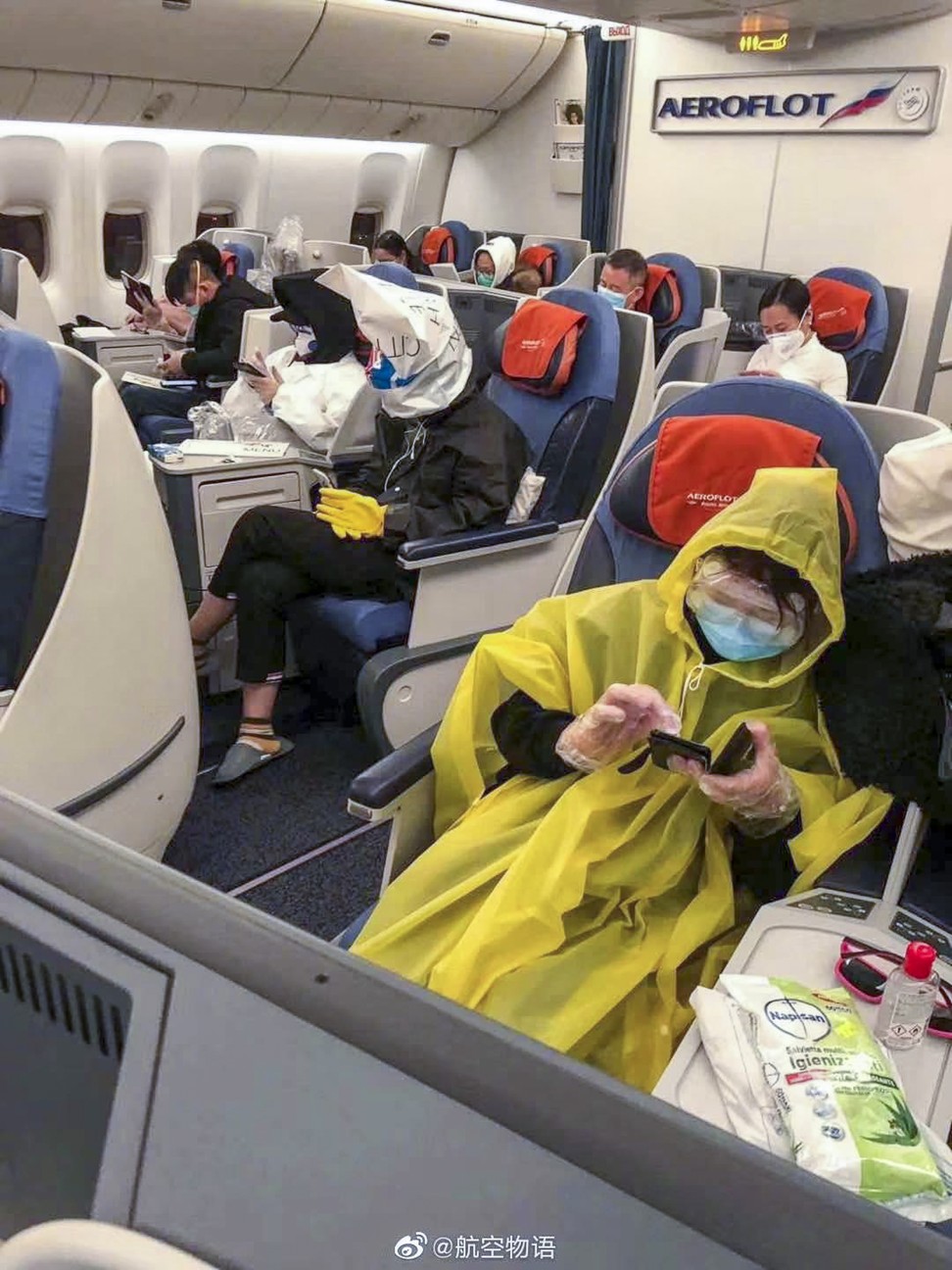Coronavirus: Hong Kong considers ramping up travel restrictions and placing all arrivals in quarantine to tackle wave of imported cases
- Top infectious disease experts call for tougher measures, including banning non-residents flying in from countries the city has issued red travel alerts for
- Government says it will start charging people arriving from mainland China HK$200 a day for bed and board in quarantine facilities so system will not be abused

Hong Kong authorities are considering ramping up travel restrictions to place anyone coming into the city under mandatory quarantine orders, as it faces a second wave of imported coronavirus infections from countries lagging behind in controlling their own outbreaks.
Top infectious disease experts on Monday called for tougher measures, from putting all arrivals under self-quarantine to banning non-Hong Kong residents flying in from countries that the city has issued red travel alerts for, even as neighbouring Macau went ahead and announced it would place all travellers from overseas under medical surveillance for two weeks.
Meanwhile, the Hong Kong government announced that from Tuesday onwards, it would start charging people arriving from mainland China HK$200 (US$25) a day for bed and board in quarantine facilities, so that the system would not be abused.
As the number of Covid-19 cases outside the mainland crossed 89,500, well above the country’s total of 80,860, Hong Kong confirmed nine more cases, taking the city’s tally to 157.
One of the new cases was a 30-year-old man who had recently been in West Africa and Dubai before visiting the Chungking Mansions building and the Kowloon Mosque in Tsim Sha Tsui. The managers of the mosque said it would be closed until further notice as a precaution.
With eight out of nine new cases involving patients who had recently travelled overseas, officials described it as a second wave of infections after initial success in keeping a lid on local infections.
“I think the senior government officials will consider all the options. They will monitor the situation and step up measures as appropriate,” Dr Chuang Shuk-kwan of the Centre for Health Protection said when asked whether the government would have to quarantine anyone coming in from overseas.
A government source said such a drastic step could not be ruled out, and the option had been discussed by senior officials over the past few days.
The source said the government would have to strike a balance between protecting public health and weighing factors such as the city’s relationship with other jurisdictions as well as the economic and social costs.
“From the perspective of stopping the coronavirus being brought in from other countries, imposing a mandatory quarantine requirement on all inbound travellers is the most effective measure,” the source said.
“But as an international city, can Hong Kong afford to implement such an across-the-board measure?”
Top infectious disease expert Professor Yuen Kwok-yung from the University of Hong Kong (HKU) said it would be a logical step to impose restrictions on all arrivals, given how the pandemic was spreading around the world.
“Now, we are not clear as to the capacity of the public health system and the testing abilities of many places, therefore I think we should take this approach,” Yuen said on a radio show in the morning, adding that he was in talks with the government on this proposal.

Dr Ho Pak-leung, another expert from HKU, issued a similar call for tougher border control, noting that 33 out of 46 confirmed cases in the past two weeks involved people travelling overseas during their incubation period.
“Even if some were listed as possibly local cases instead of imported ones, I think it’s likely they were imported based on the travel history,” Ho said on another radio programme.
“What surprises me most is that among the 33 cases, at least 10 developed symptoms before flying to Hong Kong. Some had throat pain and some had fever, but they all entered Hong Kong smoothly. None declared that they felt unwell.”
Ho said he was worried these cases had “already triggered invisible transmission in Hong Kong in the past two weeks” and “these chains of invisible transmission might gradually emerge a week later”.
Ho urged the government to take tougher action against those who failed to declare health issues, including issuing serious warnings and recording their check-in process, which could be used in potential prosecutions.
“If border controls are not well-handled, then all our efforts to fight the epidemic in the past few months will be wasted in less than a week,” Ho said.
He also proposed banning the entry of all non-residents from countries with red travel alerts so that the government could focus on handling the influx of students and other Hongkongers returning in the next couple of weeks.
Hong Kong on Sunday issued a red travel alert for the United States, Britain and Ireland, announcing plans to impose a 14-day quarantine on all arrivals from the three countries and Egypt – which already has an alert in place – from Thursday.
The rush to return to Hong Kong has already begun, particularly from countries that are popular among those studying abroad, and students are scrambling to book flights, with tickets hard to come by because of the sudden demand.
“It’s ridiculous,” said one mother who had to pay double for a ticket to get her son out of Chicago.
Some doctors reported that a number of people flying into Hong Kong showed symptoms and had to be sent to hospitals.
Other countries red-flagged by Hong Kong include South Korea, Iran and the 26 European nations in the Schengen border-free travel region.
Those arriving from Iran; Daegu and Gyeongsangbuk-do in South Korea; and the Emilia-Romagna, Lombardy and Veneto regions of Italy – the worst-hit country after China – already face mandatory quarantine in government camps.

Concerns have also been raised as to whether the city has the capacity to handle an expected surge in the number of people who have to be quarantined.
Of those who returned from the mainland, more than 19,000 were still being quarantined at home and over 700 were staying in hotels.
The government said those arriving from the mainland and staying in three government camps – Tso Kung Tam Outdoor Recreation Centre in Tsuen Wan, Sai Kung Outdoor Recreation Centre and Lady MacLehose Holiday Village in Sai Kung – would be charged to combat “abuse of the facilities and to reserve places for people with genuine need”.
The Leisure and Cultural Services Department said that as of Monday morning, around 360 people remained in those facilities, bringing the occupancy rate to near 90 per cent.
After completing a first quarantine order, 23 people were in those facilities for another round, and one of them was there for the third time. Also, more than 130 people who had homes in Hong Kong insisted on staying in the facilities.
“We believe around one-fifth of cases are suspected to have abused [the facilities],” the department said, adding that items such as hair dryers, body wash and electronic thermometers were removed. People also took away large amounts of food, including cup noodles, when they left the camps.
Those under home quarantine need to have food delivered – which is organised by the Social Welfare Department – and have people check their health and locations each day, a task coordinated by the Office of the Government Chief Information Officer.
Around 50 volunteers, including retired civil servants and people from voluntary organisations, have been involved in procuring and delivering meals and daily necessities. Around 260 people also work in temporary communication centres and make surprise video calls and check the location of those in home quarantine.
Leung Kin-hung, chairman of the Social Work Officer Grade Branch under the Hong Kong Chinese Civil Servants’ Association, expressed worries that staff would not be able to sustain such services if more people were placed under home quarantine. He said the government should hire short-term workers specifically for delivering goods to those under home quarantine.
Additional reporting by Gary Cheung